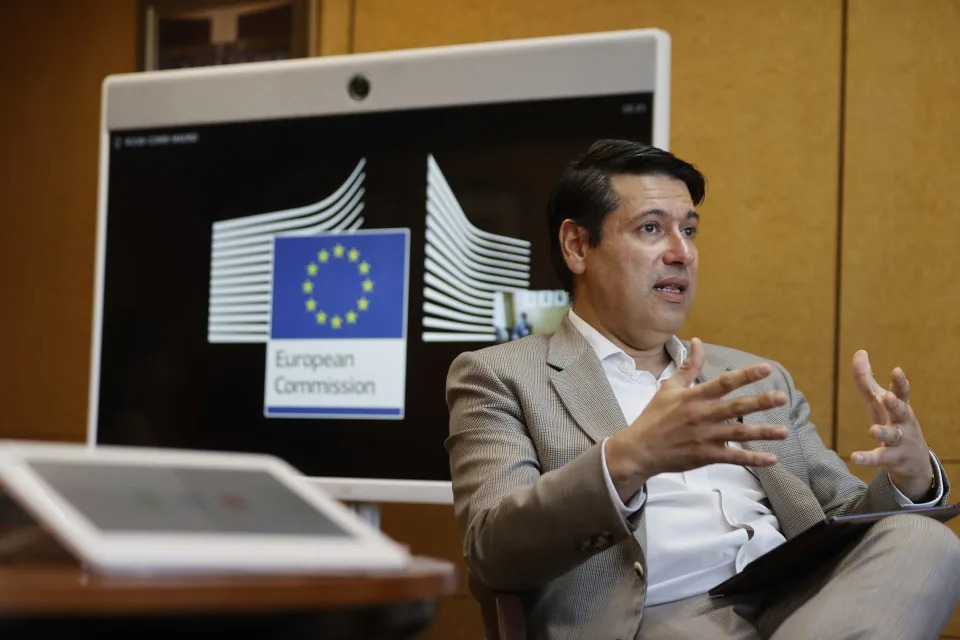The vice president of the European Investment Bank (EIB), Ricardo Mourinho, recognizes that having a single labor market in the EU is one of the “most difficult” challenges that can be raised, due to the different levels of productivity and wages in the countries that comprise it.
This is what Mourinho indicates in a statement to GLM on the occasion of his stay in Madrid to present the InvestEU program, which includes more than 372,000 million euros in investments planned for the 2021-2027 period.
For the Vice President of the EIB, salary has to be linked to productivity and, at the moment, there are very different levels (of productivity) in the EU countries, so if you want to have a single labor market “there is to invest in education and training” to match them.
Precisely this week the European Union reached a provisional political agreement on a regulation of “adequate” minimum wages in the EU, in which the diversity of national models of the Twenty-seven is respected and collective bargaining is promoted.
The document also establishes that the Member States must analyze whether the minimum wages set by law are adequate to ensure a decent standard of living, although community legislation will not introduce a single minimum wage throughout the European Union, taking into account above all the current differences.
The highest, that of Luxembourg with 2,202 euros gross per month, is more than six times higher than the lowest, that of Bulgaria with 322 euros per month, according to 2021 data published by the Eurostat community statistics office.
The lowest minimum wages are paid in Eastern Europe, since they are between 300 and 700 euros minimum per month in Bulgaria, Hungary (442), Romania (458) or Latvia (500), and the highest are found in western and northern countries, with salaries above 1,500 euros gross per month in France (1,555), Germany (1,614), Belgium (1,626), the Netherlands (1,685), Ireland (1,274) and Luxembourg.
Mourinho wanted to emphasize that to continue advancing “we always need more Europe”, despite the fact that in the face of important challenges such as the coronavirus pandemic or the war in Ukraine “a great union” has been seen, and he has given two specific policies as an example: the banking union and the securities markets union.
According to him, they are “two very important pillars” to achieve the energy and digital transition of the European economy, taking into account that public financing “will never be enough” and it will be necessary to attract private investment, something easier if the investment can circulate through throughout Europe, as is the case in the United States.
The Vice President of the EIB will complete two years in office next October, a period that he has described as “very difficult”, although he has recalled that since the financial crisis of 2008 “everything has been very difficult”. The worst moment, as he has detailed, the invasion of Ukraine by Russia, and the best, that the EIB has reached record levels of financing in 2021.

